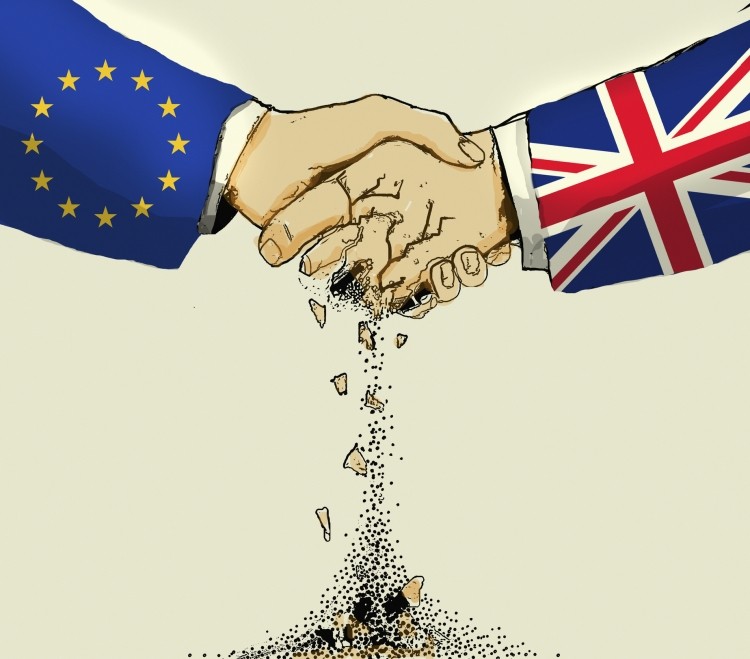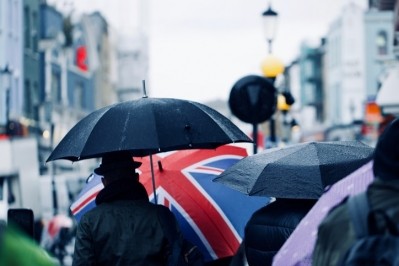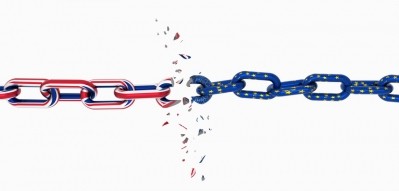UK farm lobby looking into the abyss of a no-deal scenario

In that context, both the UK’s National Pig Association (NPA) have its National Farmers’ Union (NFU) have been highlighting some of the possible consequences of a no-deal for the UK farm sector.
The NPA said the possible implications of such a scenario would include:
- An effective ban of anything from a few weeks to six months on UK exports of animals and animal products while the EU approves the UK as a third country exporter.
- Serious delays at ports as extra veterinary checks are required and some key routes, notably Dover-Calais, are unavailable due to a lack of border inspection facilities.
- Additional bureaucracy, logistical issues and costs associated with exports.
- Possible uneven tariff arrangements, as the EU imposes debilitating tariffs on UK imports, but the UK waives tariffs on EU imports to keep a lid on food costs – the worst-of-all-worlds scenario.
- A knock-on effect for pig prices and production
- Shortages of inputs, including veterinary medicines and disinfectants.
- A further devaluation of currency, which would help the competitiveness of UK pork but would make inputs more expensive.
- Possible labor shortages as free movement ends. This would hit farms, processors and other allied businesses, notably the veterinary sector, with implications also for meat inspection.
NPA chair, Richard Lister, said “No deal still is only one of various possible outcomes, but if it does come about, we should expect significant disruption, both to input supply and output. That will affect the entire industry and we need to be prepared.”
'Farming is a long-term business, and people desperately need clarity'
In a podcast published on the NFU website this week, NFU president, Minette Batters, spoke about looking into the abyss of a no-deal scenario amid the latest developments and political uncertainty surrounding Brexit.
“I hear more and more farmers are really fed up with the political situation, just saying that actually we need to get on with it and get out. I feel the NFU has to bring to life what a no-deal means so people really understand. I have to say the more we have seen, the more disastrous it looks.
“We are so reliant on the EU to make our critical dependencies - 95% of our animal medicines and vaccines are currently produced in the EU, many of our seeds our coming from the EU, our fertilizers, our water chemicals – vital things. I mean, obviously, we could get round that eventually, but there are things that will affect a business next year. It really is saying to people, you need to understand this because you need to plan ahead to prepare your business as well as you can.
“I would urge my fellow farmers to really make sure that everything they buy in to run their business, that they know where it comes from, that they understand there is a ready supply, and that they are preparing their business for all eventualities.”
The NFU leader has had 18 bilateral meetings with counterparts in other EU markets in recent times.
“It has been about meeting farmers, maintaining the links with farmer representatives across Europe. [The discussions have] been really well received; I think there was a feeling in the beginning that we were stepping back, that the UK was leaving and did not want any more to do with Europe. We’ve really made it clear that we want to maintain our high standards; that we want to keep trading with Europe, and they want to keep trading with us; it is in both our interests.”
Batters stressed that political certainty is now required in the UK:
“We need politicians to come together and put the country first over their own political priorities.
"Farming is a long-term business, and people desperately need clarity."
The NFU backed May's deal:
“We have six principles that we really have used as a check-test. We cautiously supported the Prime Minister’s package because actually it covered off those principles allowing for an orderly Brexit. It really is [about] avoiding a no-deal scenario, an economic crisis, making sure we have movement of labor, and making sure we have as frictionless trade as possible.
“People are talking about Norway, Norway Plus. The withdrawal will stand. When I met with Minister Creed, the Irish agriculture minister, he said they [the Irish government] are emphatic that the backstop is necessary and the withdrawal agreement has to be agreed before we agree anything else.
“What I do know from my many visits to Europe is they are very clear that this is the plan, this is what has been negotiated."
And time is running out....
“We have the European elections in the early part of the year. A new parliament sits on July 1. Whatever is done has to be done quickly. I have always said that we cannot go into another year without knowing what we are going into. This is a blind Brexit. It is unacceptable. I am very disappointed the vote did not go ahead this week.
'Chance for a Remain outcome increasing'
Meanwhile, Bill Diviney, senior economist, Dutch bank, ABN AMRO, in a note on Tuesday [December 11], said he believes that momentum continues to build in the UK for a new referendum to break the deadlock in the UK parliament.
“Should the delay in the vote not be more than a few weeks, and the deal is still rejected by parliament (as is very likely), then parliament could make amendments to the government’s response to force a new referendum on EU membership to take place.
“The 29 March deadline would then also need to be extended while the vote take place.
“Overall, we continue to think the chance of a no-deal Brexit has fallen, and the chance of a remain outcome has risen. However, uncertainty over the precise course of events is likely to persist in the near term."








